|
By Brian Bondy
I love my Kindle. It’s small, lightweight, and holds lots of books. I read all of Jane Austen on it at the beginning of the pandemic, including her Juvenilia. Also, Moby Dick, which was great, and The Metamorphosis, which I liked but have no idea what it meant. I’m reading A Gentleman in Moscow now, which I’m loving. And some reminders: Dan’s Kindle was stuck on a screen talking about using it when it’s plugged in and the USB or something. It would not go away. To get rid of that, press and hold the power button until it turns off. When you turn it on again, it should be fine. Also, every Kindle has its own email address. You can use it to send Kindle formatted books to your Kindle. This is especially useful in sending FREE books to yourself, which you can find on websites like Project Gutenberg https://www.gutenberg.org/ You could send yourself a PDF as well, which the Kindle can handle. Jane Austen’s books were free, as was Moby Dick and The Metamorphosis. And other places for free books. https://www.lifewire.com/places-to-get-free-kindle-books-1357954 This is an important read. Not a week goes by that I don't get a suspicious message on Messenger.
~ Carol Bondy From Rick Rouse's Daily Tech Tips. Yet another Facebook-related scam is making the rounds, but this one isn’t being perpetrated on the Facebook website. It’s actually taking place on Messenger app instead. As Facebook scams go, this one is pretty simple but it’s also unusually widespread. In a nutshell, the scam goes something like this… Several of your friends start receiving strange messages that appear to have been sent by you via Facebook Messenger. These messages can vary quite a bit but they are almost always messages that are out of character for you. Some messages will try to trick your friends into signing up for some “deal”. Others will try to get them to click a link or watch a video. Regardless of the actual messages they receive, they are almost always the types of messages you wouldn’t normally send. That should be a huge red flag for your friends, and luckily it usually will be. Most people who receive these messages recognize right away that they’re out of character for the sender and message them to let them know what’s going on. That’s why in most cases the messages themselves aren’t really the problem. The real problem is the “sender” usually thinks their Facebook account has been hacked when it actually hasn’t. Understandably, they change their password thinking that will fix the problem, but it doesn’t. Messages continue being sent out in their name even after they change their password, which of course has them pulling their hair out trying to figure out why someone is still sending messages to their friends from their account. Well, if your friends start receiving messages that appear to have been sent by you, don’t panic. Your account probably has not been hacked. What’s happening is someone has created a fake account using your name and photo and they’re using that account to make it look like the messages they’re sending came from you. Unfortunately, Facebook makes it easy for scammers to impersonate you on Messenger, and that can cause a ton of confusion when a scammer decides to target YOUR friends for mischief. The good news is your Facebook account has NOT been hacked. The bad news is your friends are receiving messages from a scammer that make them believe your account has been hacked, and when they message you to tell you about it YOU also believe your account has been hacked (even though it hasn’t). Luckily, this is one of the easiest scams to detect. Here’s how… When one of your friends messages you and says “you’ve been hacked because I’m receiving strange messages from you“, send them a message back and ask them if there are two accounts in your name showing up in their messages list. If they see your name on the list twice that means they’re receiving messages in your name from two different accounts – your real account and the fake account that was created by the scammer. Unfortunately, there isn’t really anything you can do to prevent this type of scam, or even put a stop to it because it’s very easy to impersonate another user on Messenger. What you can do is warn your Messenger contacts about the fake “you” so they can be on the lookout for those strange messages and block the fake account one they discover it. And now, one final recommendation: Even though your actual Facebook account hasn’t been hacked, I still recommend that you enable Two-Factor Authentication on it to prevent it from getting hacked in the future. Apple has ended its PhotoStream product and replaced it with iCloud. However, it will officially cease to exist July 26th. If you have iCloud and have it setup to backup all your photos, then you should be fine. If you have PhotoStream on some older devices though and haven’t set those up to iCloud, then you stand a chance of losing those photos.
I know a lot of folks out there use iCloud as backup and storage for their Apple devices, which is great. But if you still look at photos using PhotoStream, you need to save those photos you want to keep to a device that will store them in iCloud. Any concerns about this, read the following article: Apple is shuttering My Photo Stream. Here's how to ensure you don't lose your photos. - CBS News I’ve been reading about some safety concerns from cybersecurity companies for Apple phones/tablets/computers, and for Android phones, though different issues with each. I’ll start with Apple.
This Apple issue was widely reported in April, and hopefully you’ve applied your updates. It’s important enough for me to remind you though, as Apple pushed out some updates that go to their Mac computers as well as the iPhone and iPad. You can read about that HERE. Two major Apple security warnings affect a decade of Macs, iPads, and iPhones | Macworld The Apple fixes are apparently for an exploit that is 10 years old and could affect BILLIONS of devices. Update your software, run the fixes if you haven’t been doing that. For Android phones, the issue is malware inserted via several PDF and Document apps, which is used to access your banking accounts. There are approximately 600 banking apps affected, so it’s a fairly serious concern. Read the below article from Tom’s Guide and verify you do not have the malware app installed, and always, keep track of your bank accounts. Dangerous Android trojan targets 600 banking apps — and it's draining accounts | Tom's Guide (tomsguide.com) 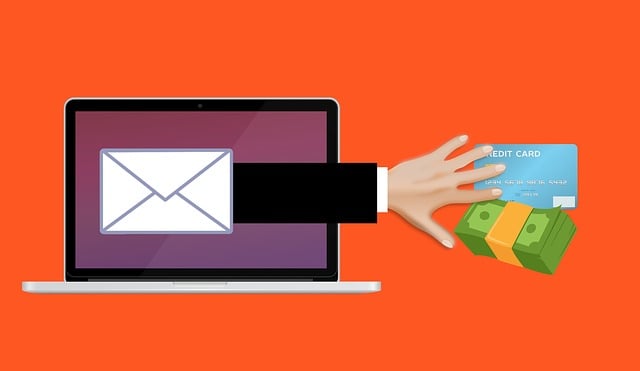 Image by Mohamed Hassan from Pixabay ~Brian Bondy
Not from me, exactly, but still good advice. Of course, first you get a story. I was recently ‘hacked’. What that means was that I got an email from someone, likely foreign, and it had my Windstream email and password. Normally, I’d ignore it but since they did actually have my password, I was a bit miffed, and upset. The good part is that I’ve been spending the last year getting rid of all my Windstream related accounts. I thought Windstream itself was the only account still related to my Windstream email. Apparently, my little used LinkedIn account was also Windstream, and it got hacked too. I did recover it, fortunately, or not, whatever. I’m not into all that Social Networking anymore, as it has badly disappointed me. That’s another story. I have multiple emails for various reasons, like through Apple, Microsoft, Gmail, and Fatcow. They are free, and serve to segregate various activities. My real point though is that you should have better passwords. Unless you really do have some complex ones, chances are they will have been stolen, either from other big data breaches, or by ‘bots’ that just continuously try different combos till they succeed. Likeliest is from breaches though. It’s estimated that BILLIONS of user’s data has been stolen from various big businesses, like Yahoo and Target. https://termly.io/resources/articles/biggest-data-breaches/ Data breaches occur every day, and often we don’t hear about it. Read The Statistics Ransomware is getting fairly common also, read about it here. So basically, I am NOT trying to scare you. What I want is to remind you to take your security seriously. Turn on two factor authentication wherever possible. Have a real password, not your pet dog's name. Use special characters, numbers, caps and lower-case mixes, and write them down in a notebook dedicated to your passwords. Supposedly, a password management app is a good thing, but that seems a little iffy to me. Experts suggest using one though. Ideally, do NOT use the same password everywhere. That’s good advice, but I don’t know how realistic it is. Using unique passwords for your financial accounts is always a good idea. Make a backup. To an external drive, to a cloud storage place, or both, but if you are worried about losing it, then you need it backed up. Finally, read this article, originally from Medicare and edited by the Council on Aging of Oregon. BTW, the hacker wanted $400 in Crypto for ‘ransom’. I don’t know what he thought he was going to do with the info he had, but I didn’t pay it. I did spend several days changing my passwords and checking my accounts for accuracy, particularly my email and phone number for 2 factor authentication. |
Tech TipsThere's a lot of fake information out there. Please be scrupulous about what you share on Facebook and other platforms. Here are some trusted sources. Please don't rely on social media for your information.
Abiquiu Computer Recycling
Abiquiu Computers gives away available computers for FREE. We recover used pc’s and upgrade them, repair them, refurbish them so they may have another life with someone else. CategoriesArchives
May 2025
|

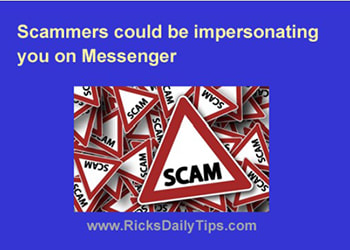
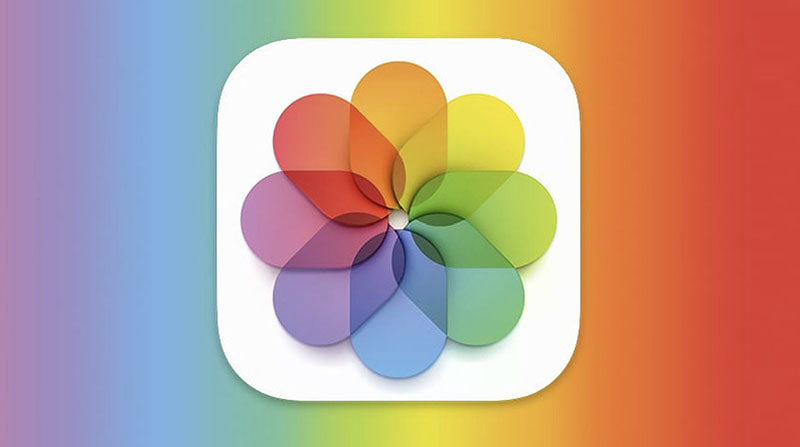
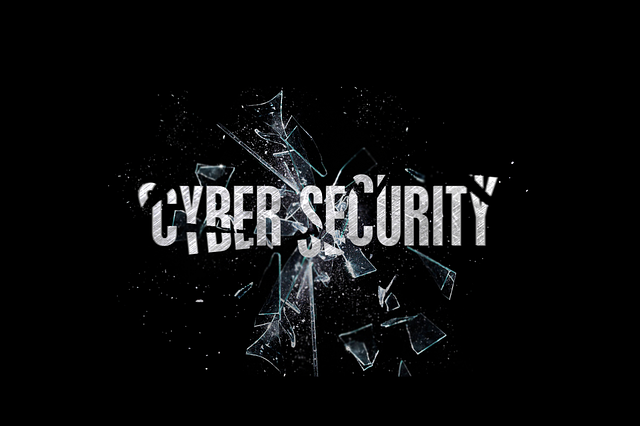
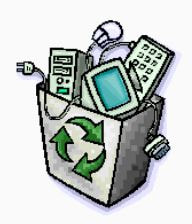
 RSS Feed
RSS Feed